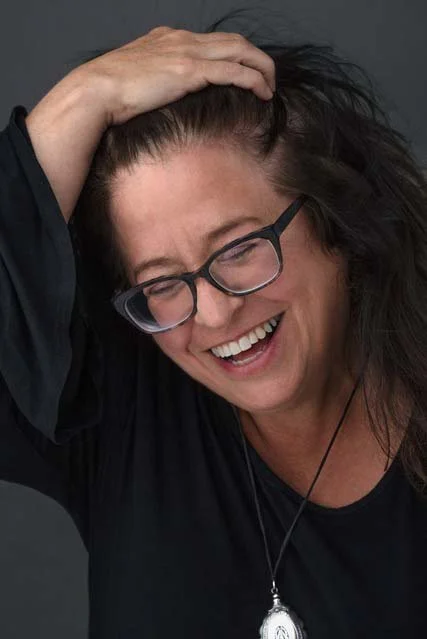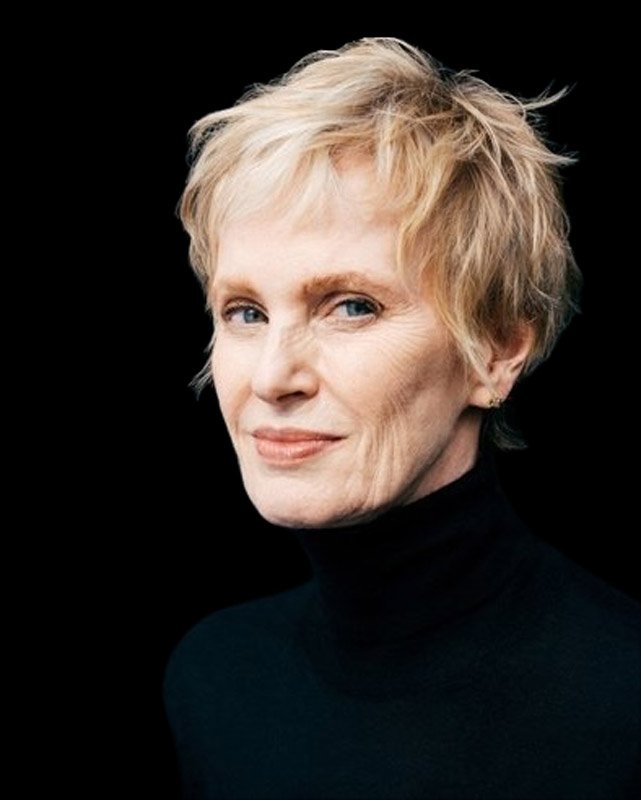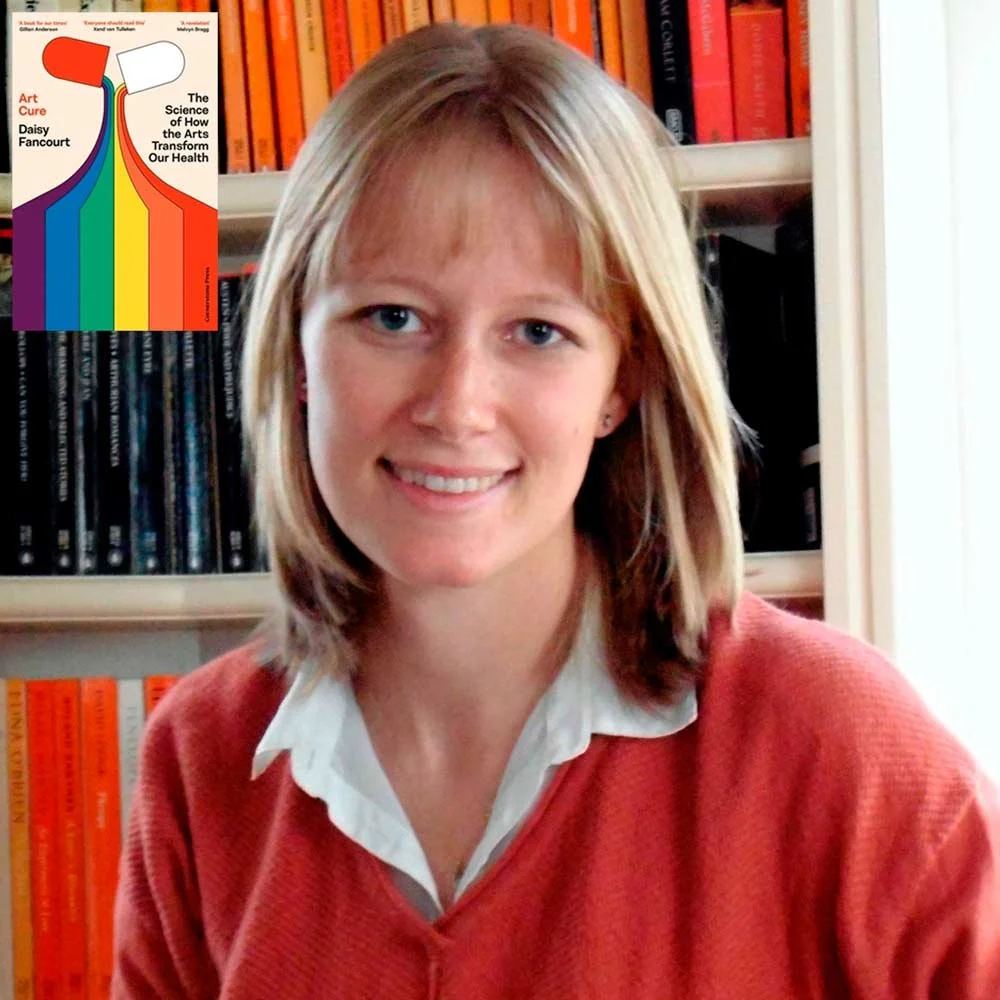By Natalie Deryn Johnson
watching myself become sexless was like watching candles go out in a cave.
watching something beautiful burn and then diminish.
.
i think my fangs shown before there was no more anger to describe care. i think I felt revolt and then peace or indifference.
.
in the darkness was the history of caves and protection, the way we have gathered for safety and survival and magic in caves . . . how the cave is the womb . . . how the cave is feminine . . . how we have been taught to fear most things important and crucial to our true survival.
.
I didn’t feel holy bad about losing recognizable sex or my sex drive or my desire to be touched. At times, yes. I felt rage and blame and abandonment. I felt diminished, defiled, weak, broken. It was also something surprising, awful and awe full at best. It was purifying. A fire or quiet, holding my petrified being. It wasn’t holy bad, though. There existed a love and a lesson within the loss. I felt a clarity and an oath. I felt the distance of my sensuality. The periphery of its intelligence, the way my senses feel the land and the rape and the government, the air of authority. The way I was weighing with myself how to construct, or if I could have, a privacy or personal sphere that didn’t exist as rebellion, but existed as existence, not defined by conflict, even if the context of violence keeps wrapping around each fold of my skin, begging for attention as if I was useful harvest. I wished for my senses as something that could feel conflict and thrust my intelligence into choice, but not as something solely tangled in repression or a duty that distorts and confuses receptivity. I don’t even know if I got that far. I haven’t wanted my pleasure to be resistance. I wanted ownership over my body in a way that the word ownership disappears.
I have known simple pleasures and eroticism and danger and play. I have known things I used to call tasty or natural or at the edge of my being. Profundity. Some time after the IUD malpractice/hospitalization thing . . . everything changed. There isn’t point in going into all that now. I can say that the energetics became more palpable. I couldn’t skip anymore, what I was feeling. I couldn’t fill in the other person’s part. I couldn’t skip being seduced or unveil the center of the wild’s without footsteps and offerings and whispers of worship. I wasn’t ready, like I was before.
It’s also important to note that in the shift from IUD to a paradigm of no manmade contraception, which existed through a portal of suicidal periods and destabilization after 3 years of double interference and luckily no immeshed devices in my uterine lining, on top of the IUD that was put in sometime in my early college years.
Whatever that was, entering into womb beyond medical land contraception was freeing and illuminating. I began to realize the hustle culture in the IUD. How my body before could receive cum and engage in a kind of rush without sensitive approach. And I did at first really miss ejaculation inside. I felt a big loss of permission and perceived safety. The IUD meant I could be violated more easily. I could be rushed. I could give access to things without dire consequence, or seemingly without dire consequence (the consequences just weren’t apparent yet), which isn’t me siding with the suppression of women or against contraception empowerment / family planning, so much as noting that there is something that actually happens to the access of women within IUD consciousness that feels nearly impossible now for me to give without entering into recklessness.
I was available to be destroyed somehow, in a way that a certain kind of right size fear and relationship with cycles protects. I feel conservative writing this, that’s my fear. I love the wild sex of my past and I also know that the IUD partnered with a part of me that hated my womanhood and diminished my cyclical nature, which was nice, the strange stability of emotion that would disappear, a kind of false man made sustained pitch. I could be a pornographic version of myself, to no knowledge of my own, to which that was true.
Pornographic as available to an idealized, brutish sex space, which isn’t to be confused with stunning cinematic porn full of embodiment and lush story telling. We deserve better porn is what I mean to say. We deserve better sex education. We deserve better treatment of sex workers.
I think the brutish part is me describing my ex boyfriend, not the IUD. But somehow the IUD did facilitate an availability of intensity that the non-IUD / medical trauma / hEDS body of mine cannot fathom. Pacing and understanding of the relational impact on my availability to sex . . . more evident than ever.
Back to losing sex.
I began a season of not opting into scenarios of pleasure that demanded violation as entry. Violation as entry was a big theme in general for my body, in large and small ways. I’d argue our coercive culture creates this normalcy. More or less graphic than presumed depending on the position of the camera, aperture, etc. Not everyone feels their pleasure exists on the other side of compromise, or harm, not necessarily. Damage accumulating. Masking accumulating. Hypermobile resiliency folding.
The real conversation is that I have a hard time understanding consent after the initial violation. What point does it have now. If my entry into existence stands on violation.
Violation as entry.
My body knows this pattern. I understand Rebellion would be necessary. rebellion is inevitable. I feel the cost of it daily, the way I have risked and risk this path, a desire to not become more disabled and more troubled and more injured, relationally aware and understanding.
My understanding will only protect me so much. Wisdom will not replace the moment where I must act with insufficient information, intuition and learning. I will have to move in the moment, only as prepared as my character / past / imagination allows.
protection.
The world can become really tiny when we protect ourselves, the sensitive ones or other ones. My world became tiny. This isn’t a conversation on discomfort so much, or of what I learned to be the retraining of the fear response (which is what I called healing from the partnering knee incident before I learned about PTSD and all the psychology language that began to dominate my own personal knowing and natural abilities to engage with my body).
/
I have agreed to damage as growth. This differs in a ways to the violations I wasn’t tracking, permissive, or hadn’t learned to notice, misogyny. Or perhaps in signing up for intensity to earn my keep and understand the material at hand, which is hard to differentiate from the pelvic harness I was made to wear to support me (as I was born with dislocated hips)(I forget where i’ve named this, so it gets named again when it comes up, as defining details). There is a genuine naivety here mixed with a self-ownership that looks like martyr or ire.
The threat I feel when I get to retreat to my own corner of the world is vast and also faint. The proportions have been wonder full, concerning, and daunting on my perception of time.
I understand that my youth, in a majority of ways, is behind me.
The things we attach to youth or vitality are not defined by age.
I am rebellious and carry a virtue that aims my mind and body into inquiries and ways of being that are both naturally deviant and labored towards understanding change.
I feel safe saying, much of my youth is elsewhere and much of it didn’t feel young.
When I say safe, I mean I am stable enough to be beyond the questioning I get every time I say I am not young and people look to my face as if I don’t know anything about being on earth, as if my time doesn’t require what it requires to savor what is left, as if I am beneath them, as if am okay. I look to young to worry is the thing. I think if me becoming pregnant puts me in the geriatric birth category, I am allowed to say: when I was young, I am not young. I am not young anymore, my youth has ended.
I am often thought of as youthful because of my character and playfulness, my soft features and willingness to behave counter to the culture’s adult protocols. Adult I have learned simply means dominated by capitalism, linearity, affluent. I was always struggling with my maturation or adulthood because I cared about something like secure attachment and emotional intelligence, a social responsibility that didn’t match with productivity built in silos.
I am often belittled before my authority is clocked, except for in smaller circles that have seen me over years and seen the way I work, create, love, grieve, move, hold metaphoric court. I am not expected until the intellectual conversations dials in and my looks begin to show the brevity of assumption.
I understand to a degree that I am unexpected. I don’t mind most of the time. It is a lot more effort to mind. My body takes this on regardless.
Even when I was young I knew my younger years were different than my peers. This isn’t a privilege conversation necessarily. It isn’t not a privilege conversation. What I understand is that I already was courting a loss, many losses. I have walked into them. I had an attitude that was mostly helpful before I lost my footing. I tried to metabolize as much of it as I could. I am in a fairly beautiful place considering. The hair ritual and the medical grant has helped immensely in transforming the emotional weight or understanding in my system.
I felt old, because that is how we describe our body’s failing us or deviating from the able projections of youth. We project youth and elderly qualities on disability and limitation. We demean, other, and isolate.
Humor does a lot to salvage what limitation and alternative consciousness provokes in the sedated village.
/
this feels cheap somehow talking about, probably because my brain feels like it is moving information through a straw, because I can’t seem to muster more presence or anchor the way I have already known or talked about these things in real life, because this seems arbitrary for stories that mean more to me than flippancy.
this is what is left at this hour
spoonfuls of ice cream moving towards room temperature, melting.
soft
/
i’m returning to the cave metaphor. when it first landed I was fascinated and surprised. was it true? and what is a cave like with no light. is it scary? is it sacred? is it full of animals and bats and insects? is it perverted? is it damp? is it full of bioluminescence? Is it the temple? is it ceremony? is it a cycle or a juncture in a larger story? How many candles went out? Are we sitting near the mouth of the cave? can we hear the ocean? are there blankets? are we alone? are we forgotten? are we entombed? Is it the fading of night sky with light bleed? Is it the loss of fireflies or the Mists of Avalon?
I like to image the smoke after the wick and wax finish their dance, when the fire goes out. The swirling waft of consecrated experience. completion’s insignia.
xo
poet's booty
First published on my poet's booty substack
Photo credit: Rhys Tivey
We’d love to hear your thoughts on the importance of the arts and humanities and how this project resonates with you.
What stands out about this project is the tapestry and sincerity of community it is creating (ecosystem) of cross-genre, cross-discipline thinkers and muses. The world we are facing requires us to move beyond the siloh approach, to be in conversation. The multiplicity is inspiring as ground for engagement with climate change and global crisis. / As for the importance of art: my impulsive write up was: The act and existence or demonstration of the arts/humanities is evidence and provocation all in the same. The importance i find is in the question and submission to the power of expression to hold or reveal or obscure or give. There is a necessary generosity and oracle-like nature to the arts that creates pauses, altars, beds, recognition, belonging, and new ways of being amidst obligation or unexamined emotionality. I know some artists feel the obligation of art. I have at times felt art stripped from me and can also sense its flame, its ever present substance. What i love about the body is its multi-dimensional sensory beauty. To connect with someone or illuminate or discover . . . through the creative process . . . allows for communion and unknown forces outside of common fluency to suspend the glue of habituation, handing over digestion to forms that can bypass the automatic mind and bring presence where there would be absence otherwise. We create new languages, of body and mind. Here, sanctuary and mystery can be met and destroyed simultaneously in necessary and pulsing ways. My engagement with the creative process, i had to learn, was both one of exorcism and poeticism or mysticism. At times I have been a movement memoirist or a choreography . . . other times a photographer and poet. The capacity to engage the practice of seeing or cultivating perspective. Culture making processes are less indulgent than they are a way to affirm the webs holding us or the imagination necessary to find resonances worthy of our hearts. I love the way the creative process makes confession, the way the artist shares in a way that goes beyond self, generating movement - sensation - reflection in the world. I love the concept of molting. I believe the generosity of culture makers is in the demonstration and expertise of their perspective amidst molting. To share images, stories, pictures, and relationality or process orientation . . . this transforms possibility . . . and the notion of possibility can lead someone and an entire generation towards shifts of not only behavior, but inhabitance and intimacy. . . how we honor the sensational and profound moments of intention we all can dare to create in our lives. The creative process is anything but frivolous. / This might be messy as a response, but i am making peace with sharing in this way and trusting the flow of divulgence.
What was the inspiration for your creative work?
Lived experience, contemplation, and the potency of language moves my work forward. Having a moody substack gives me room for stories and word tapestries to emerge spontaneously with grit and softness.
Tell us something about the natural world that you love and don’t wish to lose. What are your thoughts on the kind of world we are leaving for the next generation? I am in love with moss and ferns. I love seeing light shift and move throughout the day. Earth is magic. I don't want us to lose our ability to sense the awe nature creates or the capacity to imagine or design differently. I fear this disconnection and to an extent the culture at large has worked hard to severe enchantment, which is nature's language. As far as the kind of world we are leaving behind . . . in one sense it is devastating, especially given the heavy disposability messages of people and the planet. I see vitriol and intelligence. I'd offer that we can be in presence with nature and one another, that no matter how luxuriant we have branded slowing down, that we can call upon our own nature/natural belonging and the elements to feel connected and enter into deeper listening. It is here. And, it is also devastating. There is so much intelligence and potential that can be mobilized that necessitates innovations in relating, sharing, and seeing. Artists know a lot about that space. Chronically ill individuals know a lot about that. There is so much wisdom that can be integrated by creating community, meaning-making opportunities, and information structures that deviate from the reigning systems.
Natalie Deryn Johnson is a choreographer, writer, photographer, and embodiment guide whose work explores grief, enchantment, and primordial belonging. She’s created solo shows on medical trauma and quantum physics, and appears in Moving Still by Lois Greenfield. She aims to defy objectification culture and builds spaces where presence, poetics, and play can flourish. / nataliederynjohnson.com / intimatewitness.com / mysticdare.com















































































